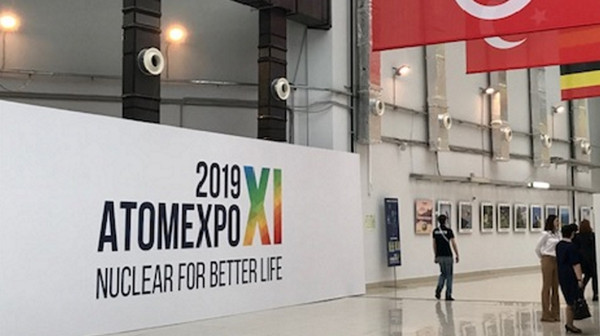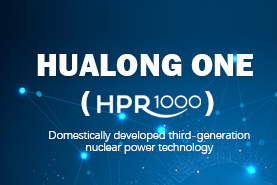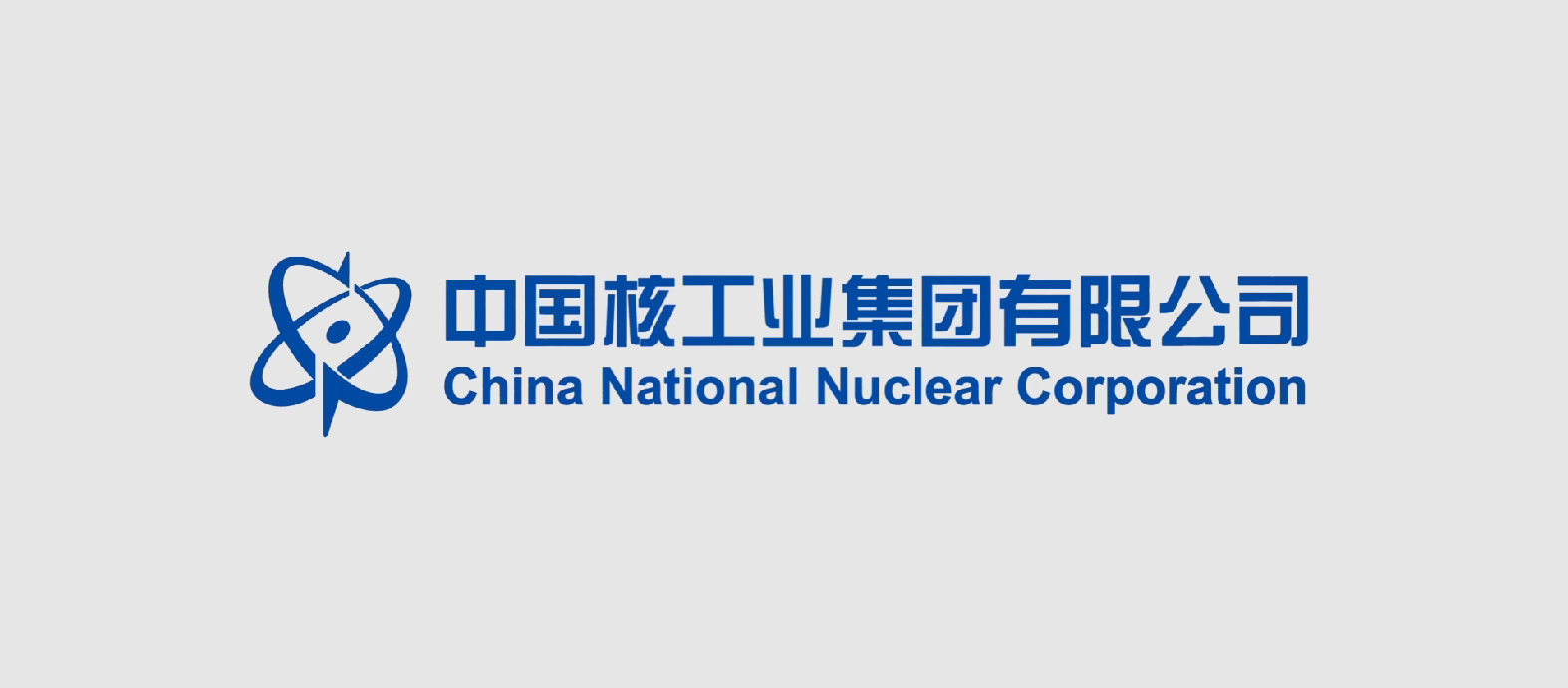Atomexpo: Nuclear is the key to sustainability
Nuclear energy has a role to play in all 17 of the Sustainable Development Goals (SDGs) adopted in 2015 by the United Nations, delegates heard yesterday at the opening ceremony of the XI International Forum Atomexpo 2019 being held this week in Sochi, Russia. Alexey Likhachov, director general of Russian state nuclear corporation Rosatom, thus stressed the motto of this year's event: 'Nuclear for better life'.

(Image: World Nuclear Association)
"Each sphere of human activity is affected by the achievements of the nuclear industry and the peaceful atom is associated with all the aims and goals of the UN's sustainable development programme," Likhachov said. "This forum will become a space for discussing the newest technologies that will lay the basis for the future of our planet." At the Plenary session later, Likhachov highlighted the low-carbon credentials of this energy source: "Nuclear generation is green and the key challenge the power generation sector needs to face today is reducing CO2 emissions. Nuclear can meet that challenge," he said.
At the Plenary, Sergey Kirienko, the former director general of Rosatom and since 2016 first deputy chief of staff of the Presidential Executive Office, said: "Talking today about a vague future for the industry is no longer valid. There is interest in nuclear energy from around the world." He added: "Partnership is a strategic choice. Together we can ensure the safe and secure development of our economies and achieve our goal of improving the lives of people around the world."
Broad reach
This year's Atomexpo programme was for the first time compiled by an international committee, which included William D. Magwood IV, director general of the OECD Nuclear Energy Agency (OECD-NEA); Agneta Rising, director general of World Nuclear Association; Jacques Regaldo, former chairman of the World Association of Nuclear Operators; and Luis Echávarri, a former director-general of the OECD-NEA.
Rising said the global nuclear industry was "making great progress". In 2018, for the first time, as many 450 nuclear reactors representing 400 GWe of nuclear capacity were in operation, she noted. They supplied nearly 2600 TWh of electricity, the sixth year in succession that had seen an increase in global nuclear generation, something not matched in the previous 20 years. Around the world, 55 reactors are under construction and nine of these are being built in four newcomer countries - Bangladesh, Belarus, Turkey and the UAE. And around 30 countries are either evaluating or preparing to use nuclear energy in the future.
"This is progress that we must build upon," Rising said.
The Intergovernmental Panel on Climate Change (IPCC) special report - Global Warming of 1.5 degrees - published last year stated that a large increase in the use of nuclear power would help keep global warming to below 1.5 degrees. Rising stressed the importance of the Harmony initiative, which aims for nuclear energy to provide 25% of world electricity generation by 2050 as part of a diverse mix of low-carbon generating technologies to avoid the most damaging consequences of climate change.
She said: "The global nuclear industry has set the Harmony target of tripling nuclear generation by 2050. The IPCC's 1.5 degree global warming report states that we may have to do much more, with their middle-of-the-road scenario requiring nuclear generation six times today’s level."
She added: "There will be no sustainable future without a rapid expansion of nuclear generation. Nuclear energy will help meet the UN's sustainable energy goals for supplying clean and affordable energy and take action on climate change. Nuclear desalination will help supply clean water; nuclear medicine will help promote good health and well-being. Nuclear plants deliver jobs, boost economies, leave space for nature and help ensure a healthy environment."
Jurabek Mirzakhmudov, director general of UzAtom, said Uzbekistan's plan to build its first nuclear power plant "is not simply to follow a trend", but is, rather, "an economic decision". It also reflects the fact that its gas and oil reserves are depleting, while nuclear plants can operate for 100 years. A third reason for its pro-nuclear policy, he said, is the benefits it will bring for social development, in terms of education and employment, while a fourth reason is that nuclear is a clean and reliable form of energy.
India has a well-established nuclear power programme and Kamlesh Nilkanth, secretary of the country's Department of Atomic Energy and chairman of its Atomic Energy Commission, said: "When it comes to clean energy, there is no substitute for nuclear because it is sustainable."
India's 22 operating nuclear power reactors provide around 3% of its electricity, according to World Nuclear Association. The country expects to bring 21 new nuclear power reactors with a combined generating capacity of 15,700 MWe into operation by 2031.
Gerassimos Thomas, deputy director general, DG Energy of European Commission noted that more than one-third of the electricity produced by EU Member States comes from nuclear.
"The EU has the ambitious goal to reduce its greenhouse gas emissions by 45% by 2030. Even if we achieve this, if there is no further policy change by 2030, then GHGs will be reduced by 60% by 2050. That's where nuclear comes in; it can help cover part of that gap," he said. "In all the scenarios that we have examined, Europe as a whole requires a significant share from nuclear. This demand will go up further with the electrification of cars."
Roland Msiska, head of the Zambia Atomic Agency, talked about the importance of nuclear power to healthcare and Zambia's cooperation with Rosatom in planning a new nuclear power plant in the African country: "We have an opportunity to design our healthcare system with the help of a nuclear research reactor ... We are not thinking twice about it. We are planning a nuclear power future for Zambia for 100 years," he said. "We are passing a nuclear energy bill and we are benchmarking ourselves with Rosatom because the company has vast experience," he added.
Global interest
Russian President Vladimir Putin welcomed participants to the forum in a message on the Kremlin's website. More than 3600 guests from 74 countries registered for Atomexpo this year - six more than last year. Among the new countries represented at the forum are Bahrain, Nicaragua and Qatar.
"Today, nuclear technologies offer fundamentally new opportunities for the development of medicine, the creation of unique materials, the conquest of space, the development of the Arctic territories, and they serve to strengthen the energy base of the economy," Putin wrote.
At a news conference hosted by World Nuclear Association, Rising took questions from journalists from Bangladesh, Belgium, Brazil and Russia, among others.
Bangladesh is building its first nuclear power plant, at Rooppur. Asked whether people living near the site of the plant ought to be concerned, Rising said: "With nuclear, you are constructing a proven technology. I would not have any concerns at all about living close to a nuclear plant; my summer house in Sweden is near a nuclear power plant and I have visited many plants, including when I was pregnant."
Following the success of the World Nuclear Spotlight Brazil conference in Rio de Janeiro earlier this month, Rising said: "I had the privilege to visit the Angra nuclear power plant. Nuclear accounts for only 2-3% of electricity demand in Brazil. It also has hydro power and uses fossil fuels and to decarbonise it will need to build a larger nuclear power programme."
Asked whether the Harmony goal closely reflected the Paris Agreement, Rising said: "Everything in the Harmony goal is in line with what is needed with the SDGs and it’s important to note that the Harmony goal is higher than the voluntary commitments made by countries in response to the Paris Agreement."
Belgium has seven nuclear reactors generating about half of its electricity and its first commercial nuclear power reactor began operating in 1974. Since 2003 there has been little government support for nuclear energy, however. A journalist from the New Europe newspaper in Belgium asked Rising whether the future of new nuclear lay outside the EU.
Rising said: "Sweden was able in the 70s and 80s to totally decarbonise its energy by adding 50% nuclear. So did France and, similarly, Switzerland. So, there are countries that have already proven they can decarbonise through nuclear. Nuclear provides more than one-third of electricity in the EU, but for the time being Europe is not going in the right direction. Slovakia, Hungary, the Czech Republic, among others, do have plans for more nuclear power. So, in Europe we see progress as well as standing still. Only one country in Europe is going backwards with nuclear and that is Germany."
Asked by a reporter from Russian newspaper Argumenti i Fakti for the optimal low-carbon electricity model, Rising said: "This is a really important question and one which energy companies are asking themselves. This choice is country-specific. Sweden has 50% nuclear and France has 75%. There are countries that have 100% renewables, but that is based on hydro, for example, New Zealand. The Harmony goal of 25% nuclear is one that most countries in the world would be able to achieve."
Diversity
During the Plenary, Magwood picked up on the goal of gender diversity from among the SDGs: "If there's one thing we need to change to make a difference with public acceptance, it's to get more women into leadership positions in nuclear."
Rising was asked about gender diversity at a briefing titled Human Capital for Economic Growth: from national interests to international cooperation. She said: "When we see there are too few young women in the system, in science, technology and maths at school, and when we see too few female teachers, we need to push because if not enough girls are involved in these subjects, then 30 years from now we will not have the human resources we need from women. And you need to look at management boards and have at least three women on each of them because one woman in a group can't make changes. Women can go forward and achieve many things if they are given the space to do so."
Callum Thomas, CEO of Thomas Thor Associates, said the international nature of the nuclear industry and the depth of experience of its personnel were other key considerations for hiring managers: "The perfect CV has an iQ and an eQ, meaning emotional intelligence, but now there is also cQ - cultural intelligence - which you need to work in an international sector like the nuclear industry." He added: "There is an increasing number of people in the nuclear industry who are semi-retired. Their motivation isn’t money or promotion but to give something back. The opportunity is there to hire these people to work as mentors around the world."


